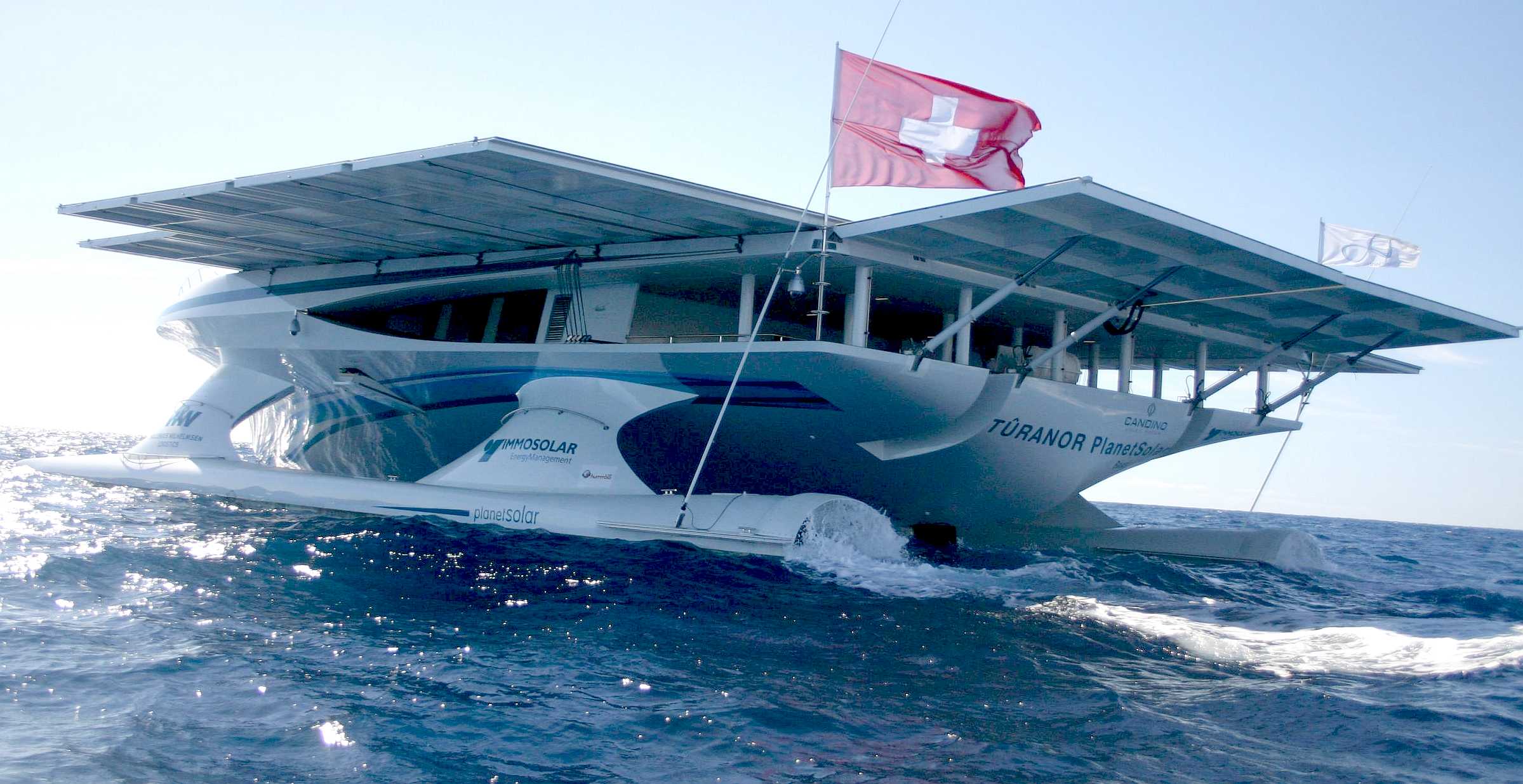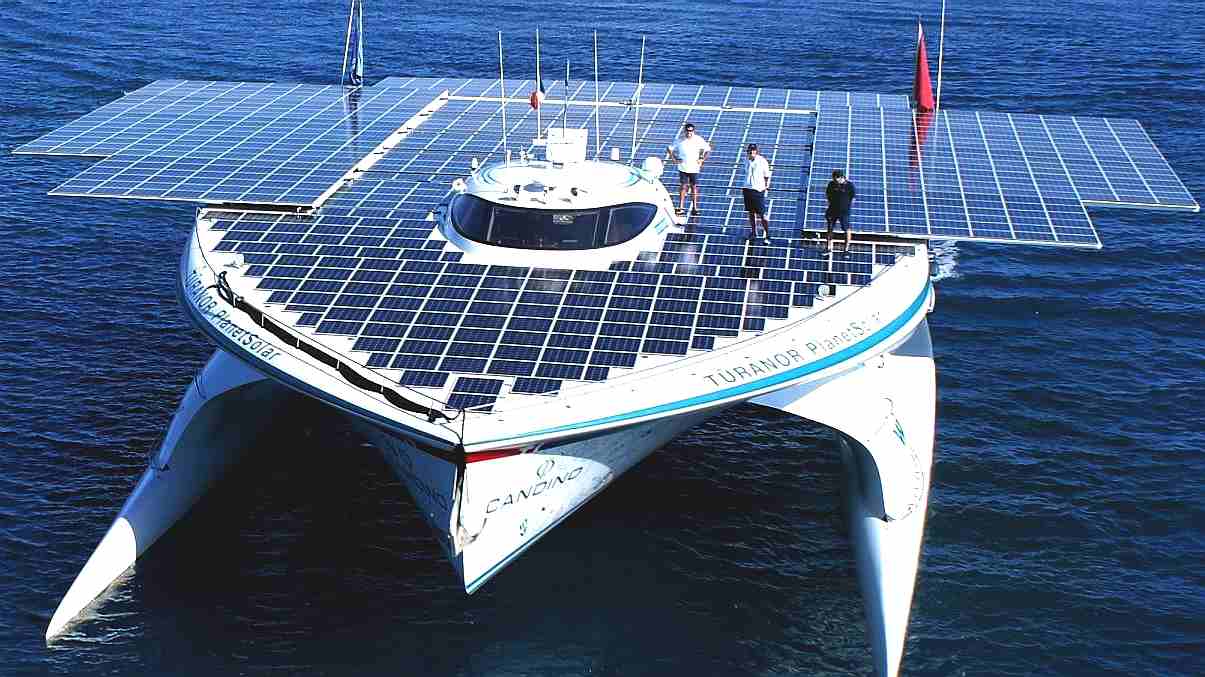
PlanetSolar
heading out into uncharted technical waters. The theory was in place,
but nobody knew if this solar powered boat could make it. But they did
it flying the Swiss flag!
IS
THIS OPPORTUNITY TAX DEDUCTIBLE?
Business sponsorship, or advertising,
can be 100% tax deductible. I.e. an
allowable expense in corporation tax calculations, prior to paying tax
in most countries around the world, with the right legal package, by way
of a written agreement.
ADVERTISING/SPONSORSHIP
AGREEMENTS
Charity or other (not for profit) sponsorship payments are different from donations because your company gets something related to
your business in return, hence they are akin to (and are in fact)
advertising costs.
You can deduct sponsorship payments from your business profits before you pay tax by treating them as business
expenses, or cost of sales.
WHAT
QUALIFIES AS A BUSINESS EXPENSE?
Payments qualify as business expenses if a not for profit:
- publicly supports your products or services
- allows you to use their logo in your own printed material
- allows you to sell your goods or services at their events
- links from their website to yours
But when is it an allowable expense for tax purposes and when is it justifiable to claim back the VAT on the expense?
LEGITIMATE
SPONSORSHIP EXPENSES
To be an allowable expense the cost of sponsorship must be incurred wholly and exclusively for the purposes of the trade; this statement should also apply for any aspect of expenses within your business.
Many clubs or sporting venues will have sponsorship and advertising opportunities that will help out your business in front of an audience you might not otherwise have had access
to, such as a well known brand of cola and football.
When considering sponsorship you should ask yourself does the proposed
sponsorship:
- Promote your business?
-
Is the purpose ‘wholly and exclusively’ business related?
-
Is the benefit of the sponsorship ‘wholly and exclusively’ business related?
If any proposed agreement meets the above conditions it will be a legitimate
business expense. Any agreement with the Foundation is negotiable,
aiming to ensure that backers increase their ROI.
So which costs relating to sponsorship can you claim as an expense?
Items you can claim for (both in your VAT returns and end of year tax returns) include costs such as:
- Entry or membership fees – providing your company is benefiting from paying the
fee
- Branded clothing and accessories – items which have the company branding on them
-
Branded assets – a cycle, a motorcycle or a car if you are sponsoring a racer,
or in this case a boat
-
Facility expenses directly related to the party being sponsored – these should be outside of normal business activity
WHAT TO AVOID
Sponsorship expenses are subjective in HMRC’s eyes, and there are several test cases where big sponsorship deals have been found by HMRC to fall outside the ‘wholly and exclusively’ test.
You have to be able to fully quantify exactly why
such advertising benefits the business – if you’re unable to do this,
we'd suggest negotiating a deal that is allowable.
DUALITY
OF PURPOSE
Clearly then, if there is any element or implication of a non-business benefit, then the
cost is not allowed against corporation tax.
If the sporting field that you are sponsoring is a director, partner or proprietor’s regular hobby, that they actively take part in – HMRC may decide that you are ‘funding’ a personal hobby.
As none of our supplier companies are in any way related, this is not a
problem, but we'll remain vigilant as to fresh approaches. You cannot
have a hobby where technology does not yet exist for a hobby situation
to have developed.
If the party being sponsored is a relative of the director, partner or proprietor – HMRC may decide that these spends are disguised earnings that you would have paid for anyway.
Generally, it is not acceptable to sponsor a relative, unless the circumstances are exceptional.
In some cases sponsoring a relative may be justified, for example if your son was an Olympian, and your business was in that particular sporting field – you may be able to justify the business benefit with the association.
Even a novice sportsman may still be a good investment providing they are advertising you in an appropriate manner.
However, you need to imagine that the party being sponsored is not a
relative. In such a case would your business still benefit from a similar sponsorship arrangement?
HMRC
COMMERCIALITY TESTS
There are a few reasons why HMRC may disallow an expense for sponsorship, so it is important to note what they might be looking for: The type of evidence that may show a lack of commerciality includes:
- Sponsoring a relative or close friend – although as mentioned above there can be some acceptable circumstances, they must be fully justified to be in the benefit of the business. If there is any doubt; disallow the cost.
-
Paying over the odds to the sponsored party – it should still be in the best interest of your business to save on costs and manage overheads so some consideration of the return on your investment should be
evident. This is why a written sponsorship agreement should be put in place, setting out your expectations of the sponsored party in return for your sponsorship.
-
Not having considered the commercial effect of the activity sponsored – unless you were looking to launch in Wales – it might be outside your interest to sponsor someone in Wales. If your business is solely based in Scotland for example, or for you to provide sponsorship of £100,000 to a local darts team. The commercial effect should be considered, documented and reasonable.
-
Would you be able to get the same $dollar ROI or PR value with other
media or advertising?
RETURN ON INVESTMENT
If you are going to invest your time and money in a sponsorship deal, then you will be doing it with the expectation of a return on your investment.
How will you measure that return on investment?
-
If you spend £1 on sponsorship, will you get that £1 back plus a % return in profit?
-
What unique marketing proposition does the sponsored project (R&D) have to offer?
-
Is there a competitive advantage to be gained?
-
What outcome do you expect to achieve? Can it be measured? How often will you measure the return?
-
If money is tight, are there other options that could provide a better return for your money?
If you can’t answer these questions, then the chances are that HMRC
may decide such an opportunity fails the Commerciality test by not being able to prove there is a benefit to your business.
In this case the Foundation are suggesting Share
Options in a dedicated R&D company, to take away any lingering
doubts as to the Commerciality test.
R&D
TAX CREDITS (UK)
Research and development (R&D) tax credits are a government incentive designed to reward UK companies for investing in innovation.
Companies that spend money developing new products, processes or services; or enhancing existing ones, are eligible for R&D tax relief. If you’re spending money on your innovation, you can make an R&D tax credit claim to receive either a cash payment and/or Corporation Tax reduction.
Small or medium-sized enterprise (SME) R&D tax relief allows companies to: deduct an extra 130% of their qualifying costs from their yearly profit, as well as the normal 100% deduction, to make a total 230% deduction.
Or you might claim a tax credit if the company is loss making, worth up to 14.5% of the
surrender-able loss. There are firms that specialize in R&D tax
claims.
A great many expenses are potentially tax-deductible, depending on the nature of your business and its ongoing requirements. Here are some of the common ones:
- salaries and subcontractor costs
- financial costs such as bank or insurance charges
- rent on business premises and business rates
- advertising and marketing costs
- entertaining employees
- obtaining trademark rights
SPONSORSHIP
AGREEMENT
Hence the importance of a written sponsorship agreement that should be in
place before any investment is made. The agreement details the value of the sponsorship and the duration of the agreement. There
will be a termination clause that allows you to cease sponsorship if you find that you are not getting the returns that you had intended. These may not always be financial, your objectives might include an increase of brand awareness, an increase in traffic to your website, or an increase in sales leads.
ACCOUNTING
TREATMENT EXAMPLES
The accounting treatment will be determined by the actual agreement relating to the
proposed sponsorship.
For example, if a bike is being purchased and donated to a rider – it would be a Profit
& Loss item.
If it is an asset to be retained as a company asset and loaned, then it would be an asset held in the balance sheet and depreciated.
None
of the above would apply in relation to simple advertising space. If
monies were contributed against purchases of goods, P&L may apply.
The term of any contract for services could be a depreciation (time
sensitive) item.
We
are flexible as to the construction of any agreement.

The
Cleaner Ocean Foundation works to help protect the "seven seas"
from the effects of anthropogenic atmospheric pollution like this ship
that is belching diesel fumes like there is no tomorrow. We'd like to
preserve tomorrow for our children. You can help us to make this scene a
thing of the past.
SHARE
OPTIONS - RETURN ON INVESTMENTS
Built
into this project, is the option to purchase shares in any spin-off
trading or dedicated R&D company, at preferential rates.
WHY
ARE YOU DOING THIS?
Because
you can, and because the ocean needs cleaner technology.



